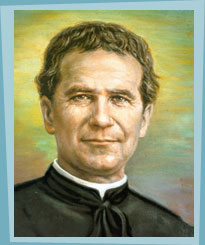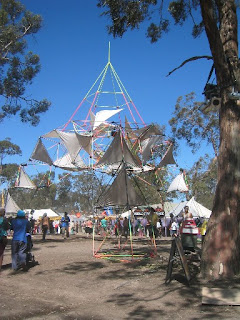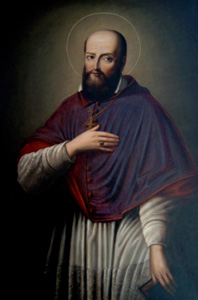
Was reading
this article today and I'm just feeling so frustrated by the whole thing. And this isn't even the Herald Sun, who is doing even less 'balanced' coverage. All the coverage of this has demonised protestors, and now the defense mechanisms protecting the sanctity of police are out in force.
It probably upsets me more because I see the dynamic from the other end too, and what most people don't realise is that exactly the same things are being said by the other 'side'. I'm not going to rat out the detail of the list I read, but most people on it have pretty much scapegoated the police and the government as the only ones who did anything even remotely reprehensible. Couldn't it be that,
in actual fact, we as protesters did things wrong as well as the police? Isn't that even
possible? Would that tear down the legitimacy of your argument, the argument you've tied your ego to so that it's impossible to separate out the actions of anyone on "your side" and what is or is not 'helpful' or even 'valuable', let alone 'good'?
Then there's just irresponsible and sloppy journalism like this: "The threat of disciplinary proceedings against officers has angered police union leaders, who say protesters pelted their members with bottles and balloons filled with urine."
Rubbish. The police union admitted in the days after the protests there were no urine-filled balloons. This is trotted out at every single freaking protest, and the general public eat it up because it's exactly what they want to hear. It makes protest that much easier to dismiss, and by the time it's proven wrong, it's too late: it's stuck in everyone's minds.
What frustrates me most is the complete inability of the media or politicians to hold or recognise complexity. Could it be that
in actual fact many police did act properly, but others didn't, or didn't always? Could it be that
in actual fact many protesters, including those who were hit with overhead baton strikes (which are illegal, by the way) were not violent, or even disruptive, though some others were at some times? It doesn't have to be "either all the police acted properly or all the police acted improperly" (and notice the asymmetry of how this is a matter of
propriety for police, and
criminality for protesters), let alone "either all the protesters were violent or none of the protesters were violent". And the police can't hold the general public to a standard they're not willing to hold themselves to. Particularly in terms of assault and battery.
All this at a time when I was interviewed again today on police tactics by a journalist wanting to write about G20. I know she wanted to hear "yeah, they were awful" but all I had was "it was a real mixed bag..." because it was. Some of them were wonderful to us - we were given icecreams and chocolate bars and had substantial conversations with some. Others were awful - condescending or patronizing, rude or threatening. None of them were completely one or the other. So what do you do with that, as a journalist?
Then there was this pearler from
here (Bracks on the complaints from the Human Rights Observer Teams):
"(It) doesn't mean the complaint will be followed through. It may ultimately be thrown out . . . if you look back at the (2000) World Economic Forum I think there was a number of complaints made and I don't know that any of those were substantiated."
Actually, Steve, most of them were substantiated. A massive amount of them. There were even sackings, and disciplinary action. But I suppose you don't remember: it was your first week in office after all. And there's no advantage for you in admitting that police make mistakes too. Even though they do, and that's ok, we can deal with them.
I know the integrity of the Human Rights Observer Teams too. I watched them being set up, have people I know in them, and know how much they cared about their role (a volunteer one, incidentally). I know how they disciplined themselves to be impartial, and to call things only as they saw them. So when they come out with the final report (this is only a preliminary one) you'll know it has the weight of real observations from people of integrity.
But I have no interest in beating up on police (or even Bracks) when in actual fact it's far more complicated than just scapegoating either so-called 'side'. Because that's the whole problem, isn't it? That we cannot (or refuse to) hold complexity, and so we scapegoat, and project our own sin and dirt and rubbish onto others, and for what? For a false peace born of a sense of self-righteousness that never deals with the actual issues or the real causes. Until we can face our own demons, and find them redeemed (not destroyed) we are bound (and I mean
bound) to repeat them.
So again I start with me. I try, with everything in me, to refuse to scapegoat. I hold the complexity of both/and instead of either/or. I try - and fail - to stand between both extremes with my arms outstretched saying "no more - for me or anyone else". What else is the cross than that?
Human existence is neither perfectly consistent (what rational and control-needy people usually demand) nor is it incoherent chaos (what cynics, agnostics, and unaware people expect), but instead human life has a cruciform pattern. It is a "coincidence of opposites," a collision of cross-purposes; we are all filled with contradictions needing to be reconciled.
The price that we pay for holding together these opposites is always some form of crucifixion. Jesus himself was crucified between a good thief and a bad thief, hanging between heaven and earth, holding onto both his humanity and divinity, a male body with a feminine soul, expelled as the problem by both religion and state. He rejected none of thesee, but "reconciled all things in himself" (Eph. 2:10) -- Richard Rohr, Everything Belongs.




























